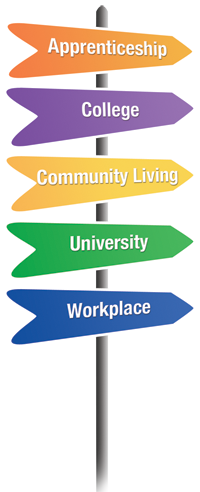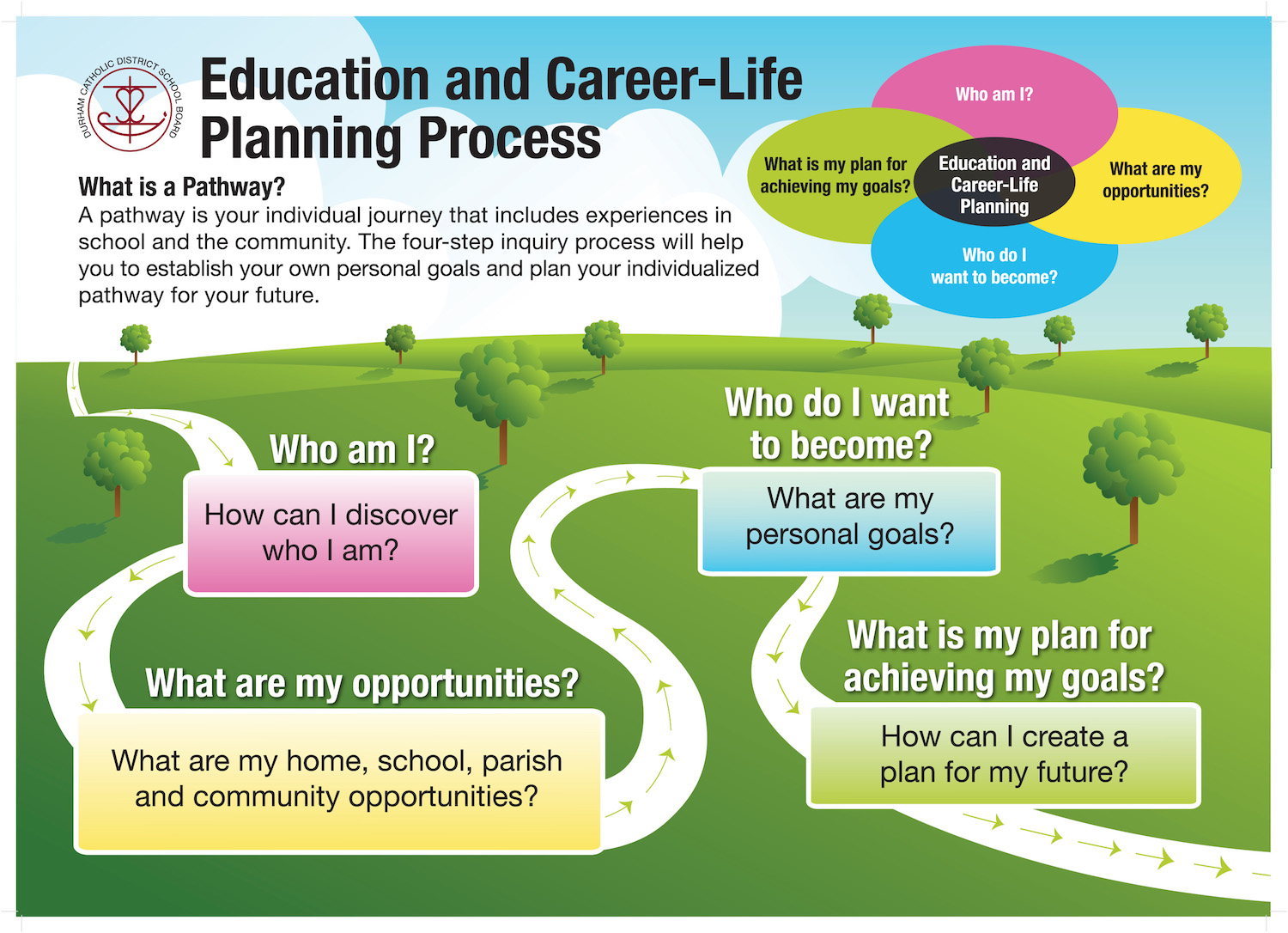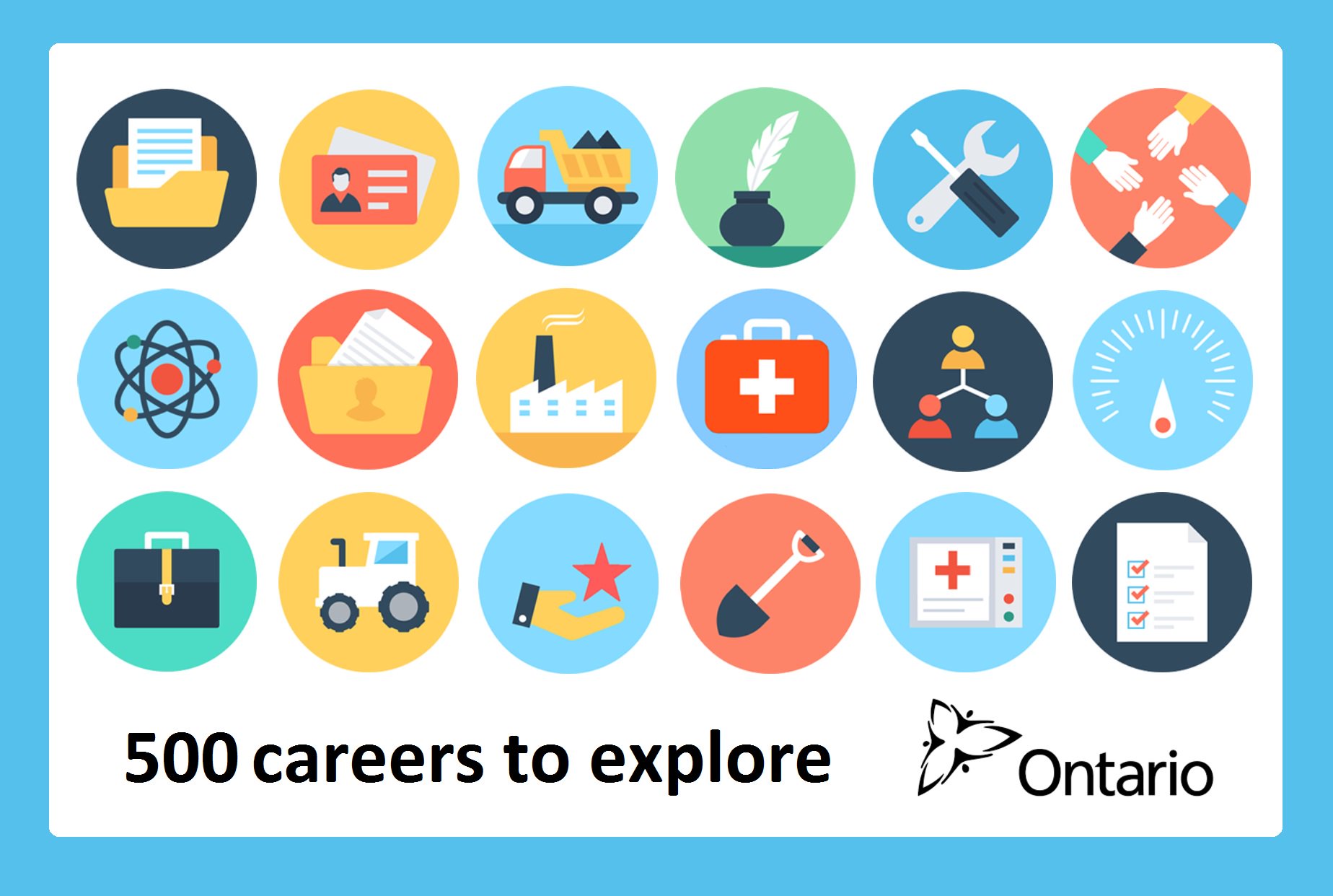
What is your Individual Pathways Plan?

There are many ways to journey toward work. The journey involves the transition from grade-to-grade and to life after high school to one of the post-secondary destinations of: Apprenticeship, College, Community Living, University or the Workplace.
A "pathway" refers to the individual journey that each student will take that includes experiential learning, school and community supports, courses and programs that will help lead to a successful transition to a post-secondary destination.
Students are life-long learners. The idea of planning a pathway toward an educational goal should be focused, yet flexible. Educational goals can change over time. The ultimate goal of a student is to find and enjoy meaningful work.
As a Catholic learning community, we are committed to helping our students develop skills and work habits which will help them throughout their educational journeys in preparation for post-secondary education, community living and the workplace. Based on the seven guiding principles of our Catholic Graduate Expectations, these specialized program pathways provide opportunities for students to become effective communicators, lifelong learners and collaborative contributors in our global community.
View the DCDSB Pathways to Success booklet for more information.

Developing an Individual Pathway Plan
The Ministry of Education outlines "Creating Pathways to Success: An Education and Career/Life Planning Program from Kindergarten to Grade 12" and the four step inquiry process. It is designed to help students achieve their personal goals and become competent, successful, and contributing members of society. The Education and Career/Life Planning Program Fact Sheet offers a quick summary of Creating Pathways to Success.
Throughout secondary school, students develop and explore their pathway plan through courses, extra-curriculars, community involvement activities, information sessions, programs, and experiential learning.
Secondary Pathways
There are a wide variety of secondary school programs that students can be involved in as they develop their IPP. These may include (but are not limited to):
- Cooperative Education
- Dual Credits
- Specialist High Skills Major (SHSM): Arts & Culture, Business, Non-Profit, and Transportation SHSMs are offered at St. Mary
Post-Secondary Pathways
- Apprenticeship (Skilled Trades)
- College
- Community Living
- University
- Workplace
For more information on these 5 post-secondary pathways and the secondary school requirements, visit Course Levels and Calendars and Getting Ready for Post-Secondary.
Ontario's Labour Market

Labour market information and statistics can help you plan your career. Learn more about work trends and the skills, education and training you need for jobs today, and in the future at Ontario's Labour Market.
- Search Job Profile: Explore 500 job profiles to find the one that's right for you
- Labour Market Information: We provide labour market information to help individuals and organizations make decisions about careers, education, training and employment.
Canada's Labour Market
When planning a career-life pathway, students should consider a variety of factors in a chosen career before beginning post-secondary education and/or training. Learn more about an occupation you are interested through Canada's Labour Market Information. Investigate wages, employability outlooks, education, and skills needed for a career. Informed education choices early in life can help young Canadians obtain the skills and experience necessary to find work quickly, avoid unnecessary debt and get a better start to their careers.
Resources
- Ministry of Education: Education and Career/Life Planning Fact Sheet
- DCDSB's Pathways to Student Success Guide
- myBlueprint
